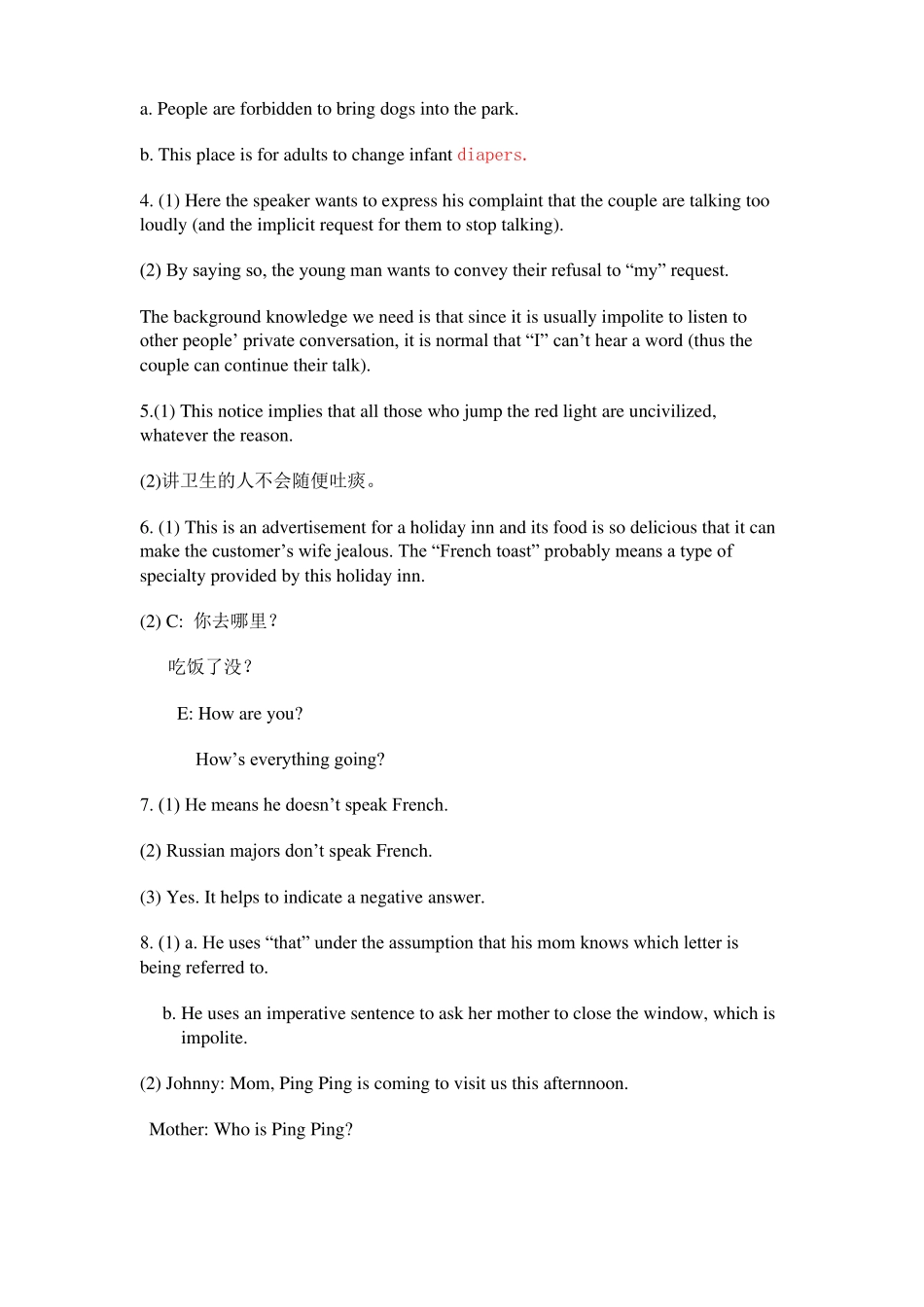Introduction[check your understanding]1. fSyntax and semantics each have their own strengths.2. fPragmatics is also interested in how language use affects the language system.3. t4. f5. tIn-Class Activities1. ASK(1) Yes, he’s coming.(2) Yes.[No, he isn’t coming](3) His knowledge about whether Pat likes cognitive linguistics or not.2.(1) a. John is obviously not Hitler. There is only one Hitler in the world.b. Golf as an inanimate object can’t play a human being (John).c. It is a case of tautology that conveys no new information.d. “Idea” doesn’t have color and can’t sleep since it is inanimate. The whole sentencedoesn’t make sense.(2) a. it can be used for communication in a context where John shares somepersonality with Hitler.b. when John is a poor player of golf.c. in a context where a certain boy has done something wrong (out of naughtiness).(3) when the sentence is used in poetry to personalize the word "idea".3.(1) a. In an entrance of a park.b. In the restroom of some public places like an airport.a. People are forbidden to bring dogs into the park.b. This place is for adults to change infant diapers.4. (1) Here the speaker wants to express his complaint that the couple are talking tooloudly (and the implicit request for them to stop talking).(2) By saying so, the young man wants to convey their refusal to “my” request.The background knowledge we need is that since it is usually impolite to listen toother people’ private conversation, it is normal that “I” can’t hear a word (thus thecouple can continue their talk).5.(1) This notice implies that all those who jump the red light are uncivilized,whatever the reason.(2)讲卫生的人不会随便吐痰。6. (1) This is an advertisement for ...


